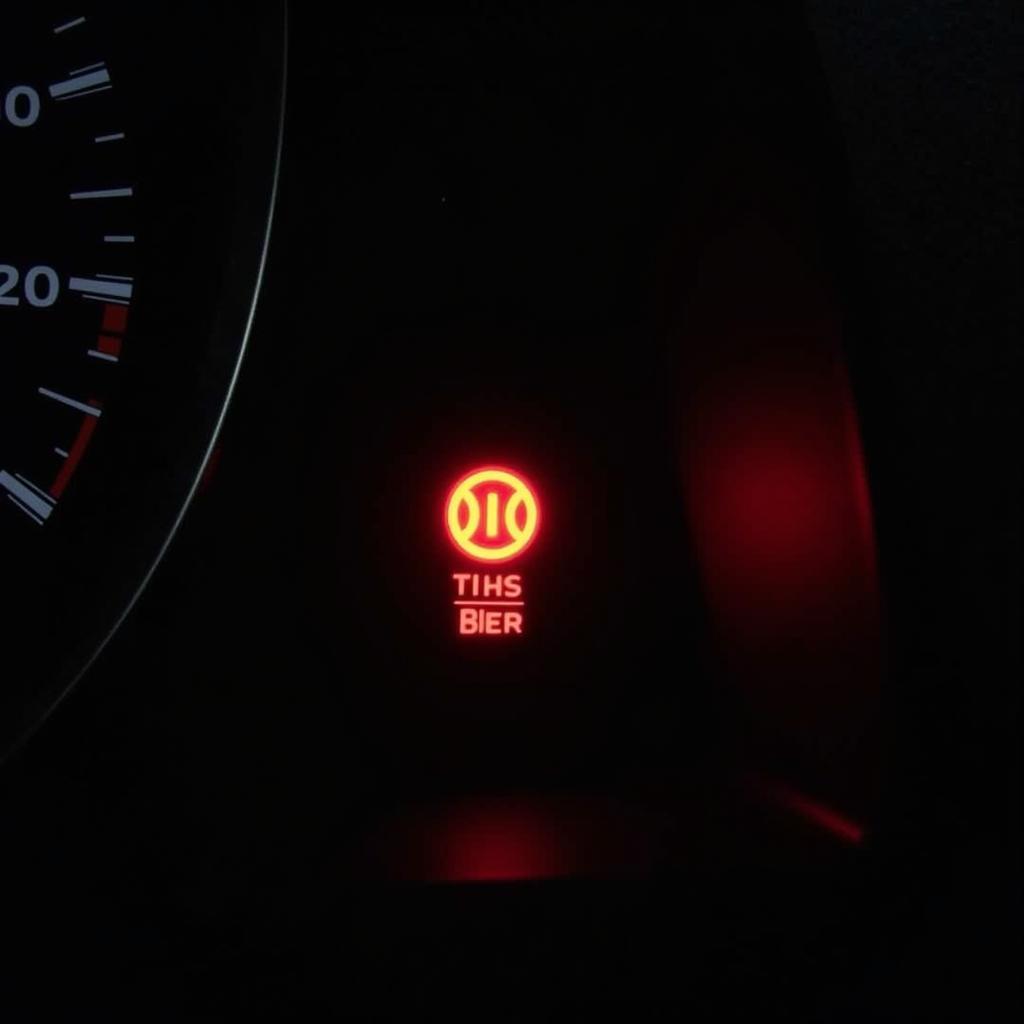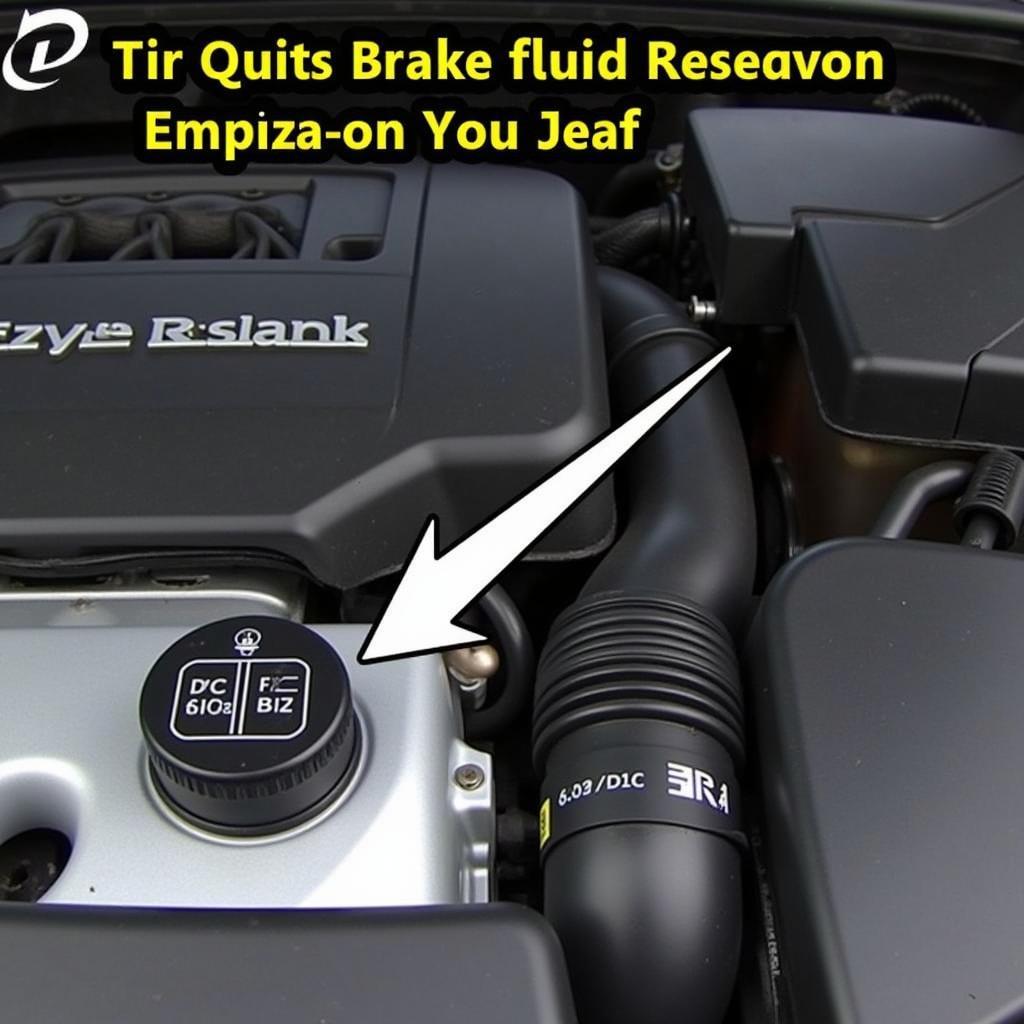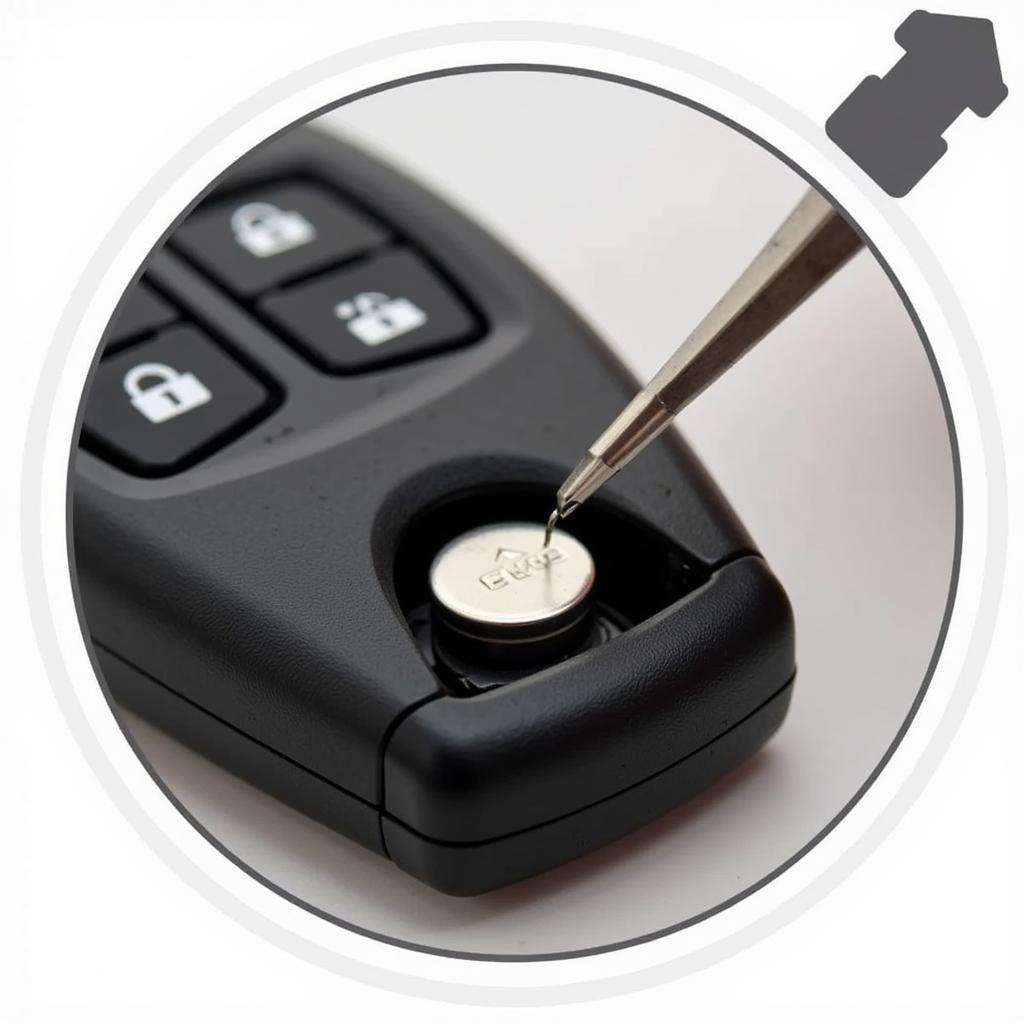A glowing red brake warning light on your Audi A4 B7’s dashboard is a clear sign that something is amiss with your braking system and requires immediate attention. Ignoring this warning could lead to brake failure, putting you and others at risk. This comprehensive guide will delve into the common causes of this issue and provide potential solutions to help you get back on the road safely.
Understanding Your Audi A4 B7’s Brake Warning System
Before we dive into the specifics, it’s important to understand how your Audi A4 B7’s brake warning system works. The red brake warning light is triggered by various sensors within your car’s braking system. When these sensors detect an abnormality, such as low brake fluid levels or a fault in the system, the warning light illuminates to alert you of the potential danger.
 Audi A4 B7 Dashboard Warning Lights
Audi A4 B7 Dashboard Warning Lights
Common Causes of a Red Brake Warning Light
Here are the most common culprits behind a red brake warning light in an Audi A4 B7:
-
Low Brake Fluid Levels: One of the most frequent causes is insufficient brake fluid. Brake fluid is the lifeblood of your braking system, transmitting the force applied to the brake pedal to the brake calipers, which then engage the brake pads to stop the vehicle. A leak in the system can lead to a drop in brake fluid levels, triggering the warning light.
-
Worn Brake Pads: Brake pads are designed to wear down over time. If they wear down too thin, the brake pad wear sensor will make contact, completing a circuit and activating the warning light.
-
Faulty Brake Pad Wear Sensor: Like any other electrical component, the brake pad wear sensor itself can malfunction. This could be due to a broken wire, corrosion, or simply a faulty sensor.
-
ABS (Anti-lock Braking System) Issues: The ABS system prevents your wheels from locking up during hard braking, helping you maintain steering control. A problem with the ABS module, wheel speed sensors, or wiring can also trigger the brake warning light.
 Audi A4 B7 Brake Fluid Reservoir
Audi A4 B7 Brake Fluid Reservoir
Diagnosing the Problem
Accurately identifying the root cause of the red brake warning light is crucial for effective repair. Here’s a step-by-step approach:
-
Check Your Brake Fluid Level: Open the hood and locate the brake fluid reservoir. The reservoir will have minimum and maximum level markings. If the fluid level is below the minimum mark, you’ll need to add more brake fluid. However, simply topping off the fluid won’t solve the issue if you have a leak.
-
Inspect Your Brake Pads: If your brake fluid level is fine, the next step is to visually inspect your brake pads. Look through the spaces between the spokes of your wheels to check the thickness of the brake pads. If they appear thin or worn down, it’s time for a replacement.
-
Consult a Professional Mechanic: If you’re uncomfortable performing these checks yourself, or if the issue persists after addressing the brake fluid and brake pads, it’s highly recommended to consult a qualified mechanic specializing in Audi vehicles.
Solutions and Repairs
-
Adding Brake Fluid: If you have a leak, adding brake fluid will only be a temporary solution. It’s vital to identify and repair the source of the leak to prevent further complications.
-
Replacing Brake Pads: Worn brake pads must be replaced as soon as possible to ensure optimal braking performance and safety.
-
Addressing ABS Issues: Diagnosis and repair of ABS-related problems often require specialized diagnostic tools and expertise. It’s best left to a qualified mechanic.
 Audi A4 B7 Brake Pad Wear Sensor
Audi A4 B7 Brake Pad Wear Sensor
Don’t Ignore the Warning
“Ignoring a red brake warning light can have dire consequences,” says Master Technician, Mark Johnson, with over 20 years of experience working on Audi vehicles. “At best, you’re risking significant damage to your braking system. At worst, you could be putting yourself and others in danger of an accident.”
Conclusion
A red brake warning light on your Audi A4 B7 should never be taken lightly. By understanding the common causes, you can take the necessary steps to diagnose and address the issue promptly, ensuring your safety and the optimal performance of your vehicle. Remember, when in doubt, always consult with a qualified mechanic.

